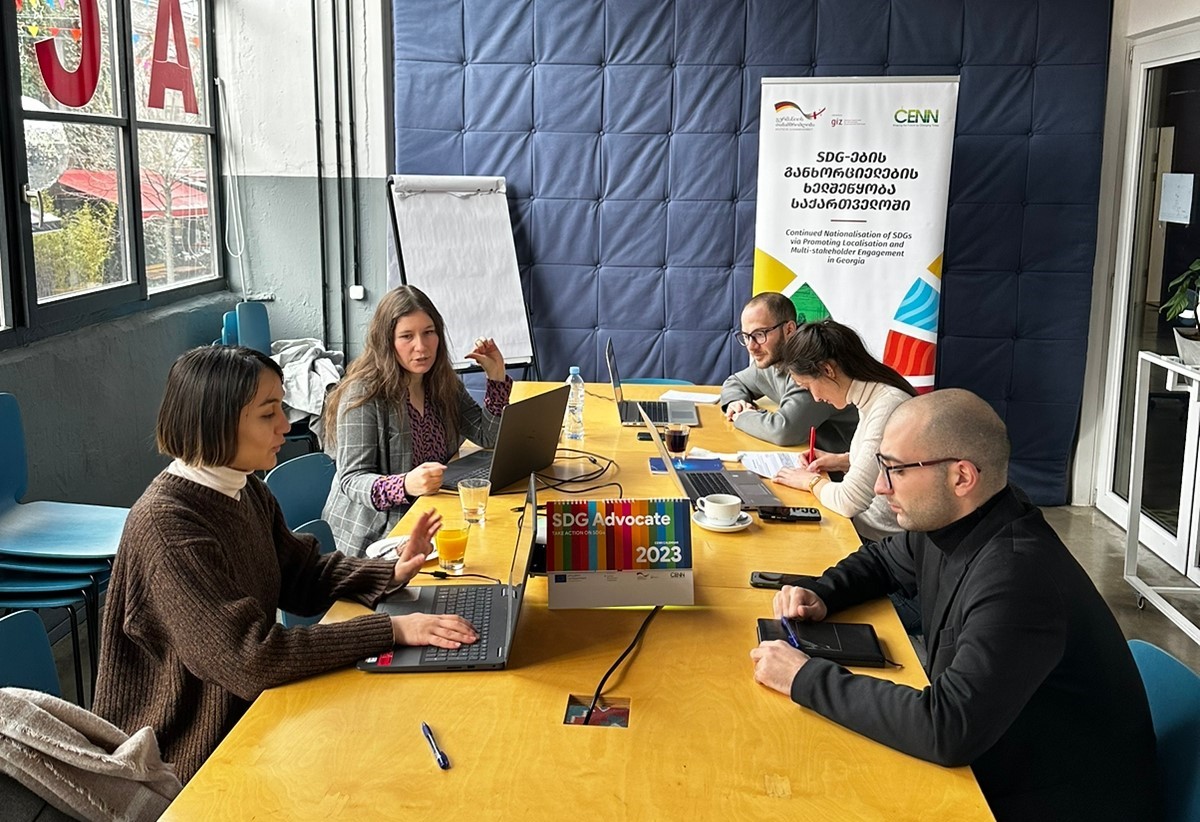CENN, with the German Government’s support, has organised a strategic workshop for the organisations co-chairing the four Thematic Working Groups under the SDG Council.
The purpose of the strategic meeting was to plan activities supporting the implementation of the Action Plan of the SDG Council Working Groups for 2023 and the coordinated work for the upcoming year. The co-chair organisations reflected on the previous year’s progress and challenges. They planned new engagement mechanisms for non-state stakeholders in the implementation, monitoring and reporting of SDGs in Georgia.
Representatives of CENN, the Georgian Young Lawyers Association, the Association “Education For All” and the Economic Policy Research Center have been actively working throughout the previous year as the co-chair organisations to strengthen the CSO engagement in the work of the SDG Council.
The SDG Council of Georgia is a multi-stakeholder platform working on implementing SDGs in the country. Its functions are coordination of interagency issues associated with the implementation of SDGs; establishment and oversight of relevant working groups to support the strategic planning, integrated implementation, and effective monitoring of assigned SDGs and related thematic fields; incorporating SDGs into Georgia’s national policies etc.;
The council has four Thematic Working Groups (WG) on Social Inclusion, Economic Development, Democratic Governance and Sustainable Energy and Environment Protection. Each Working Group has three co-chairs – State agencies, UN representations and relevant CSOs. CENN was elected as a co-chair in the WG on Sustainable Energy and Environment Protection (along with the Ministry of Environmental Protection and Agriculture and UN FAO). With the support of GIZ and the German Government, CENN actively cooperates with the other three co-chair organisations to strengthen the work of Working Groups.
The workshop was held within the “Continued Nationalisation of SDGs in Georgia” project, which aims to jumpstart SDG implementation, continue the nationalisation of new targets and commence the localisation of SDGs in Georgia. The program is financed by Deutsche Gesellschaft für Internationale Zusammenarbeit (GIZ) GmbH on behalf of the German Federal Ministry for Economic Cooperation and Development (BMZ).
By strengthening the capacity of the SDG Council’s Secretariat, the thematic Working Groups and non-state stakeholders, the project supports the development of institutions that will ensure the long-term sustainability of the steps taken by the country toward the Sustainable Development Goals; thus, it contributes to the country’s sustainable development.
